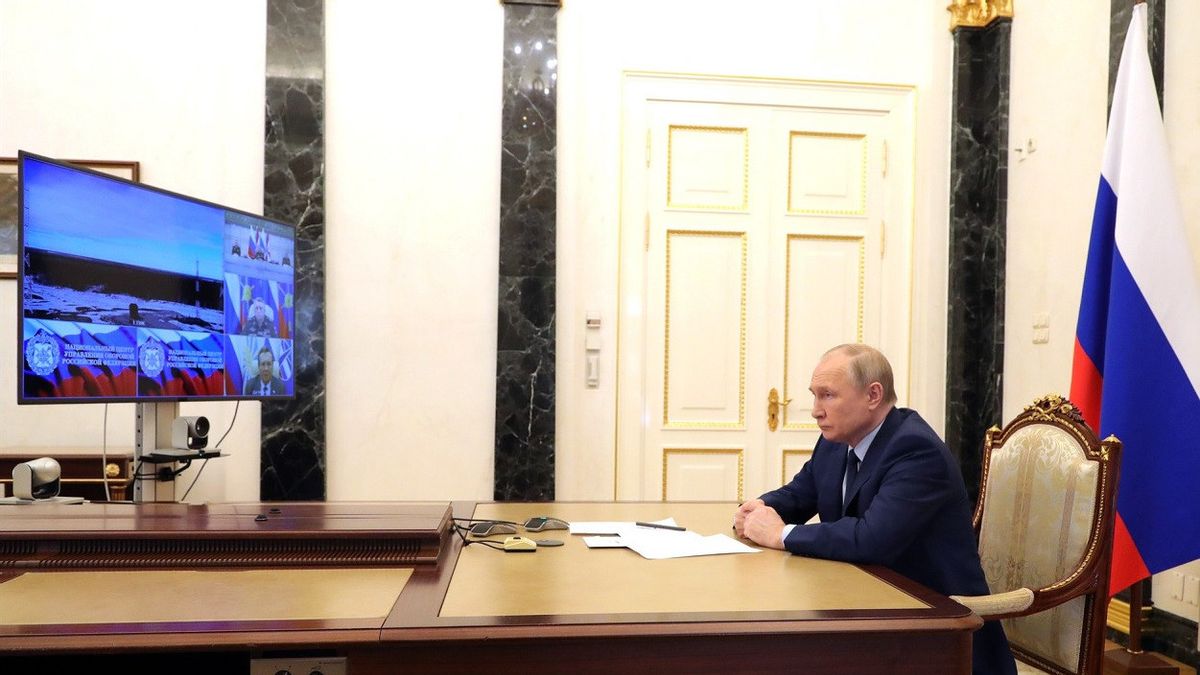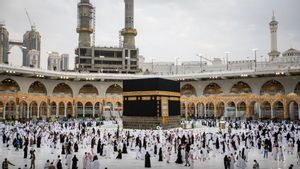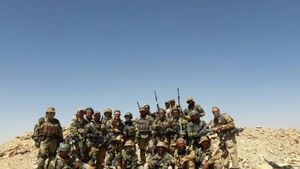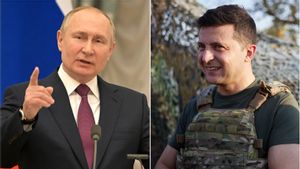JAKARTA - Russia for the first time announced the test launch of the long-awaited Sarmat intercontinental ballistic missile (ICBM) for its nuclear arsenal, capable of making Moscow's enemies stop and think according to President Vladimir Putin.
President Putin Putin online heeded military notices that missiles were launched from Plesetsk in the country's northwest and hit targets on the Kamchatka peninsula in the far east.
Sarmat has been in development for years and its test launches were not a surprise to the West. But this launch comes at a time of extreme geopolitical tension over the war in Ukraine.
"This new system has the highest tactical and technical characteristics and is capable of overcoming all modern anti-missile defense means," President Putin said.
"This truly unique weapon will strengthen the combat potential of our armed forces, ensure the security of Russia from external threats and provide food for thought for those who, in the heat of frenzied aggressive rhetoric, try to threaten our country," Putin said.
Russia's nuclear forces will start taking deliveries of new missiles "in the fall of this year" after testing is complete, Dmitry Rogozin, head of the Roscosmos space agency said, quoted by TASS on Wednesday.
Separately, Douglas Barrie, a senior research fellow for military aerospace at the International Institute for Strategic Studies, said the launch was a significant milestone after years of delays due to funding issues and design challenges.
He said more tests would be needed before Russia could actually deploy them to replace the aging SS-18 and SS-19 missiles which are "past the date of sale".
Barrie said the Sarmat's ability to carry 10 or more warheads and decoys, and Russia's option to fire them over one of Earth's poles, pose challenges for ground-based and satellite-based radar and tracking systems.
Meanwhile, Jack Watling of think-tank RUSI in London said there was an element of attitude and symbolism involved, eight weeks into the war in Ukraine and less than three weeks before the annual Victory Day parade where Russia shows off its newest weapon (Victory Day 9 May).
VOIR éGALEMENT:
"The timing of the test reflects Russia's desire to demonstrate something as a technological achievement ahead of Victory Day, at a time when many of their technologies are not yet delivering the results they want," he explained.
The Russian defense ministry said the Sarmat was fired from a silo launcher at 15:12 Moscow time and the training warhead reached a test range in Kamchatka, nearly 6.000 km (3.700 miles) away in the Pacific.
Igor Korotchenko, editor-in-chief of Russia's National Defense magazine, told RIA news agency that it was a signal to the West that Moscow was capable of a "devastating retaliation that would end the history of any country that has violated the security boundaries of Russia and its people".
The English, Chinese, Japanese, Arabic, and French versions are automatically generated by the AI. So there may still be inaccuracies in translating, please always see Indonesian as our main language. (system supported by DigitalSiber.id)













